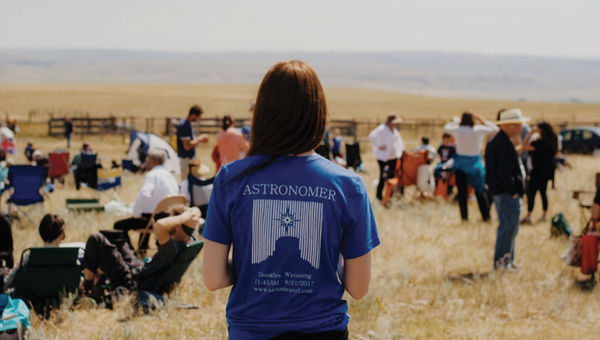For your next trip, look up. That's the basis of astronomy tourism, or astrotourism, which has seen sky-high interest following the 2024 total solar eclipse over North America, tour operators say.
And it's not just the sun driving interest. Astrotourism itineraries centered around the night sky, including stargazing and the northern lights, are also becoming more popular.
But last April's celestial event, visible over much of the U.S., instilled a solar eclipse bug in travelers, who are now clamoring to see future ones, including an upcoming eclipse that will feature the longest path of totality in anyone's current lifetime.
Just days after the 2024 eclipse, around 1,000 inquiries flooded TravelQuest, an operator specializing in astronomy-themed tours, said spokesman Mark Dorsten.
"We're in a fascinating time of human history where we have an understanding of how everything works, or at least most everything," Dorsten said of the night sky. "But there was a time not that long ago where it was pretty mysterious, and it was unknown and there was mythology around it."
TravelQuest is offering itineraries to Luxor, Egypt, to witness the eclipse over North Africa on Aug. 2, 2027, which will offer the longest path of totality until 2114.
With maximum duration occurring near Luxor -- of more than six minutes, about two minutes longer than last April's -- trips are already sold out, TravelQuest said, prompting it to begin looking into adding a third tour. That's the case for other operators, too.

Sirius Travel rented a ranch for its solar eclipse tour in Wyoming in 2017. Photo Credit: Sirius Travel
Sirius Travel has already put people on waiting lists for its 2027 eclipse trips to Egypt due to astronomical interest. The company will bring close to 1,000 people to the country for the event, said founder Victoria Sahami, who is also an astronomer.
"We saw this huge increase after the April eclipse last year," she said. "Now, suddenly, our trips are being booked out four years in advance."
The company also has trips planned to Iceland and Spain next year and to Australia in 2028 for eclipses. Although Sirius specializes in eclipse travel, the company also offers an archaeo-astronomy tour of Scotland with an expert to explore the country's standing stones and their astronomical alignment.
Operators outside of the astronomy niche are also getting in on the craze and offering solar eclipse tours.
AdventureWomen will offer a seven-day tour of Iceland for the 2026 eclipse. For the 2027 event in Egypt, river cruise line Viking will be sailing on the Nile; Geographic Expeditions will offer a 10-day itinerary with Egyptologists; and Steve Ridgway, president of Criterion Travel, said the education-focused tour operator has put lodging space on reserve for two years because of demand.
Eyes on the northern lights
Perhaps the most popular astrotourism trips are ones to see the aurora borealis, or northern lights. They are curated by many tour operators.
The northern lights tourism sector alone was estimated at $834.5 million in 2023, according to Grand View Research.
The solar maximum, the peak of the sun's activity during its 11-year cycle, led to dazzling aurora borealis displays last year, visible even in parts of the U.S. that would not typically see the dancing lights. NASA predicts the solar maximum to peak in July, meaning that those taking northern lights tours this year are likely to see the phenomenon.
John Hall's Alaska has led winter tours to the state for 11 years now and has never ended a trip without seeing the lights at least once, said COO Joe Hall. A new itinerary this year includes a photography lesson on how to best capture the lights.
Tour operators aren't the only ones cashing in on the astrotourism boom. Hotels and providers of outdoor accommodations also are showing off the galaxies.
The Kakslauttanen Arctic Resort in Finland offers glass igloos for guests to observe the aurora. DarkSky International, a nonprofit dedicated to fighting light pollution, has its own list of approved lodging for stargazing, including five Under Canvas locations in the United States.
Stargazing is an important part of tourism for parks in the western United States. Missouri State University researchers found in 2019 that visitors to the Colorado Plateau -- parts of Arizona, Colorado, New Mexico and Utah -- will spend an estimated $5.8 billion through 2029 on dark-sky tourism.
One thing is clear, according to operators: Like the night sky itself, interest does not appear to be going away.